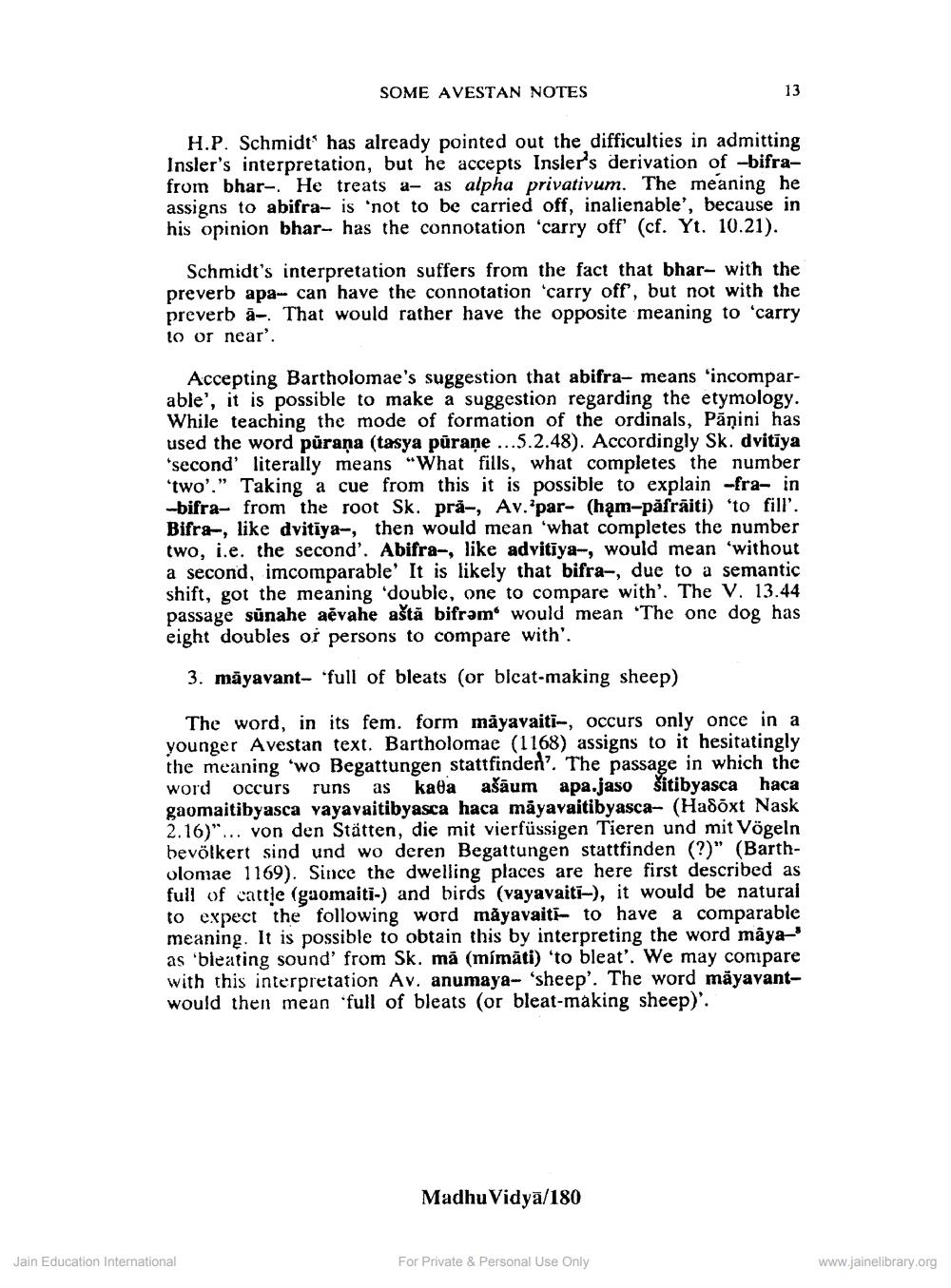________________
SOME AVESTAN NOTES
H.P. Schmidt has already pointed out the difficulties in admitting Insler's interpretation, but he accepts Insler's derivation of bifrafrom bhar. He treats a- as alpha privativum. The meaning he assigns to abifra- is 'not to be carried off, inalienable', because in his opinion bhar- has the connotation 'carry off' (cf. Yt. 10.21).
Schmidt's interpretation suffers from the fact that bhar- with the preverb apa- can have the connotation 'carry off, but not with the preverb a. That would rather have the opposite meaning to 'carry to or near'.
13
Accepting Bartholomae's suggestion that abifra- means 'incomparable', it is possible to make a suggestion regarding the etymology. While teaching the mode of formation of the ordinals, Panini has used the word purana (tasya pūraṇe...5.2.48). Accordingly Sk. dvitiya 'second' literally means "What fills, what completes the number 'two'." Taking a cue from this it is possible to explain -fra- in -bifra- from the root Sk. pra-, Av. par- (ham-påfräiti) 'to fill'. Bifra-, like dvitiya-, then would mean 'what completes the number two, i.e. the second'. Abifra-, like advitiya-, would mean 'without a second, imcomparable' It is likely that bifra-, due to a semantic shift, got the meaning 'double, one to compare with'. The V. 13.44 passage sunahe aevahe aštă bifram' would mean 'The one dog has eight doubles or persons to compare with'.
3. mayavant- full of bleats (or bleat-making sheep)
Jain Education International
The word, in its fem. form mayavaiti-, occurs only once in a younger Avestan text. Bartholomae (1168) assigns to it hesitatingly. the meaning 'wo Begattungen stattfinden. The passage in which the word occurs runs as kata ašaum apa.jaso šitibyasca haca gaomaitibyasca vayavaitibyasca haca mayavaitibyasca- (Habōxt Nask 2.16)"... von den Stätten, die mit vierfüssigen Tieren und mit Vögeln. bevölkert sind und wo deren Begattungen stattfinden (?)" (Bartholomae 1169). Since the dwelling places are here first described as full of cattle (gaomaiti-) and birds (vayavaiti), it would be natural to expect the following word mâyavaiti to have a comparable meaning. It is possible to obtain this by interpreting the word mayaas 'bleating sound' from Sk. må (mimāti) 'to bleat'. We may compare with this interpretation Av. anumaya- 'sheep'. The word mayavantwould then mean 'full of bleats (or bleat-making sheep)'.
Madhu Vidya/180
For Private & Personal Use Only
www.jainelibrary.org




